The Lunar New Year is a critical Tet occasion for Vietnamese people. However, not everyone knows the origin and meaning of the Lunar New Year. In this article, let's find out what the Lunar New Year is and the origin and meaning of this special occasion!
- What is Lunar New Year (Traditional New Year or Tet Nguyen Dan)?
- Origin of Lunar New Year
- Meaning of Lunar New Year
What is Lunar New Year (Traditional New Year or Tet Nguyen Dan)?
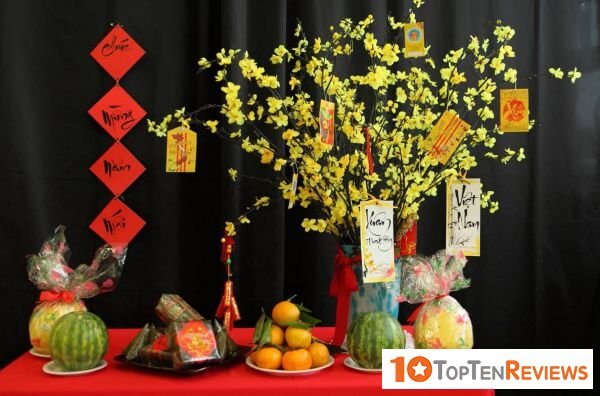
- When is the Lunar New Year in Vietnam?
- What not to do on Lunar New Year Vietnam? (Argue, swear and say bad things -Commit Cruelty - Sweep House and Wear black clothes)
According to Wiki, the Lunar New Year (also known as Tet Ca, Tet Ta, Lunar New Year, Traditional New Year, or simply Tet) is the most essential and meaningful Lunar New Year celebration in Vietnam. "Tet" is the Sino-Vietnamese pronunciation of the word "Tiet," "Nguyen" in Chinese means the beginning, and "Dan" is early morning, so the correct pronunciation must be "Tiet Nguyen Dan."
Tet is calculated according to the lunar calendar, so the Vietnamese Lunar New Year is later than the New Year (or Western New Year). Due to the rule of 3 leap years and a month of the lunar calendar, the first day of the Lunar New Year is never before January 21 and after February 19, but usually falls between these dates. The entire annual Lunar New Year holiday usually lasts about 7 to 8 days at the end of the old year and the first seven days of the new year (December 23 to the end of January 7 according to the lunar calendar).
Origin of Lunar New Year
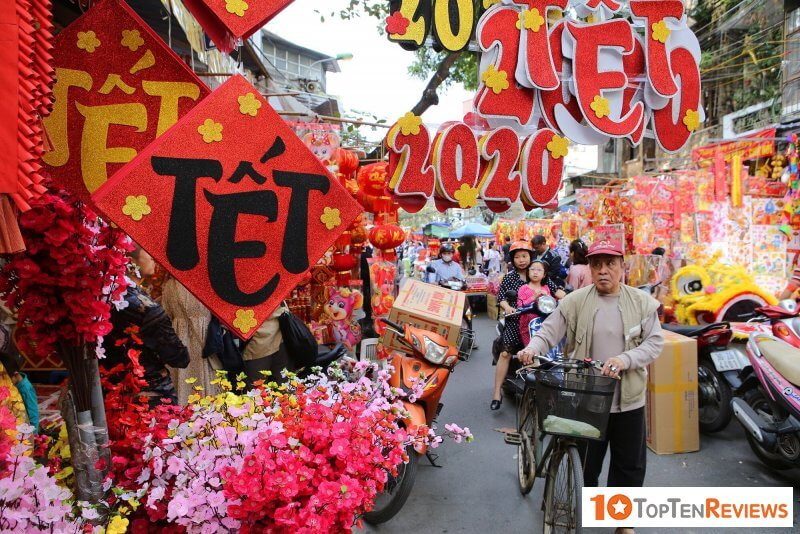
How the Lunar New Year originated is still a matter of debate. Most information suggests that the Lunar New Year originated from China and was imported to Vietnam during the 1000 years of Northern domination. But according to the story of "Banh Chung and banh day," Vietnamese people have been celebrating Tet since the Hung Kings, that is, before the 1000 years of Northern domination.
Even Confucius wrote in the Book of Rituals: "I don't know what Tet is, I heard somewhere that it is the name of a great festival of the Man people, they dance like crazy, drink wine and have fun. in those days". In the book Giao Chi Chi, there is also a passage that says, "The people of Giao Quan often gather to dance, sing, eat and play for many days to celebrate a new planting season ." Thus, the Lunar New Year originated in Vietnam.
In general, the Lunar New Year of Vietnam and China have mutual influence but still have their characteristics of each country.
Meaning of Lunar New Year
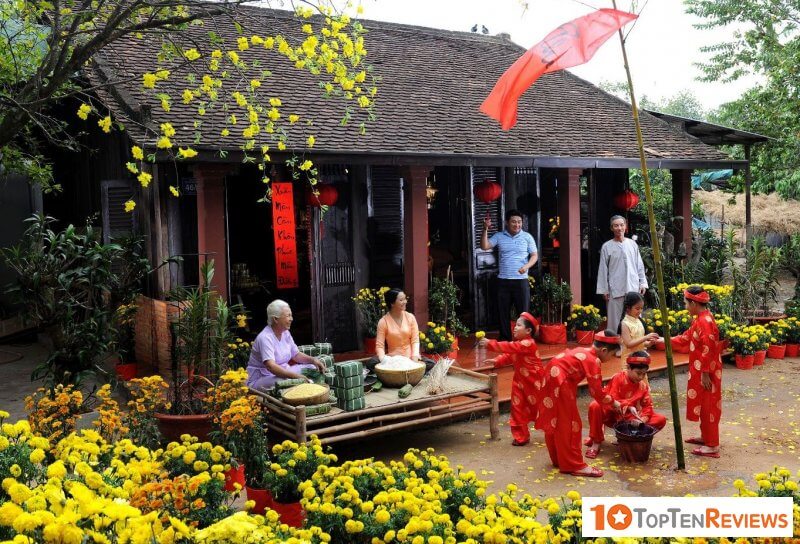
For Vietnamese people, the Lunar New Year is not only a transition period between the old year and the new lunar year, but it also contains many spiritual and cultural meanings. According to the Eastern concept, this is a period. Heaven and Earth have reconciled, and people become close to the gods.
The old Lunar New Year was an occasion for farmers to pay respects to gods such as Earth god, Rain god, Thunder god, Water god, Sun god and pray for a year of favorable rain, wind, and seasons bumper membrane. Besides, this is also considered a "refreshing" day, a day for people to hope for a peaceful, prosperous, and favorable new year for the whole year and put aside all bad luck in the old year. Therefore, every house is busy cleaning, shopping, and decorating the home beautifully on the Tet holiday.
This occasion is also an opportunity for people to renew emotionally and spiritually so that the relationship with their loved ones is closer, the spirit is more comfortable and joyful. During the Tet holiday, families often gather to wish each other New Year's Eve, light incense sticks together in memory of their grandparents and ancestors and thank them for their blessing over the past year.
The customs and habits of Vietnamese people during the Lunar New Year
- Offer to Mr. Cong and Mr. Tao
- Banh Chung package
- Clean and decorate the house
- Five fruits tray
- Visiting ancestors
- Landslides
- Give lucky money
During the Lunar New Year, Vietnamese people have many exciting and meaningful traditions and rituals that show their cultural characteristics.
Offer to Mr. Cong and Mr. Tao
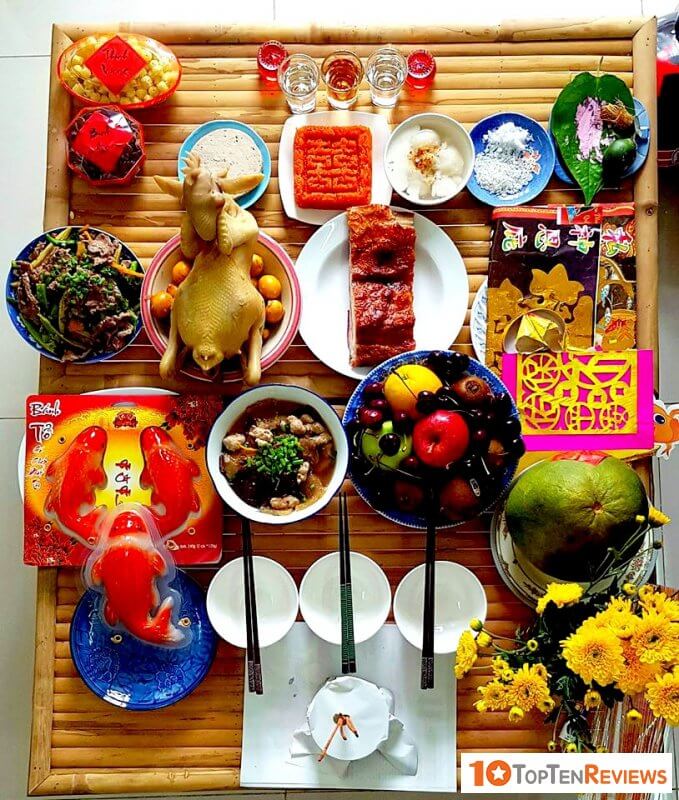
According to Vietnamese tradition, on the 23rd day of the 12th lunar month, families will celebrate the farewell ceremony of Mr. Cong and Mr. Tao to heaven to report everything in the owner's house to the Jade Emperor. On this day, people often clean the kitchen, cook a tray and buy goldfish to offer to see off Mr. Cong and Mr. Tao to heaven.
Banh Chung package
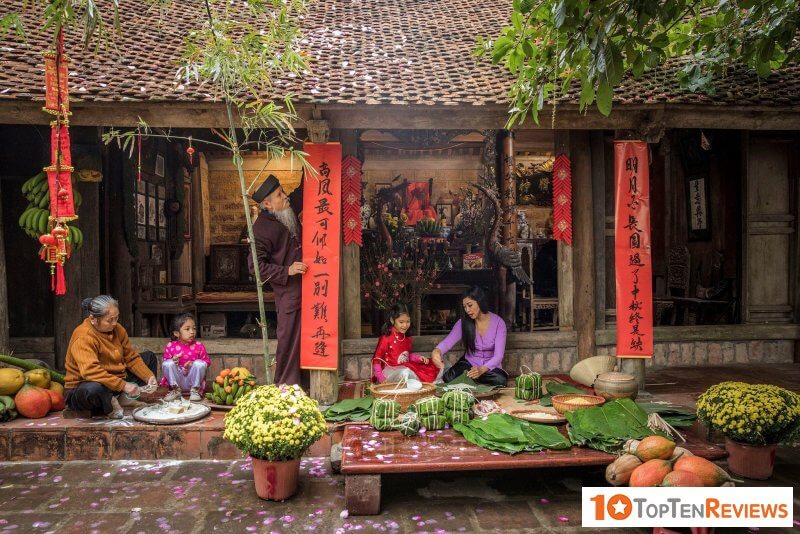
Banh Chung and banh tet are traditional dishes indispensable in the Vietnamese Lunar New Year and a meaningful gift for relatives and friends. Therefore, in the days before Tet, many families, clans and villages often gather together to chat, pack cakes, and boil cakes all night.
Clean and decorate the house

In the last days of the year, families in Vietnam clean and sanitize their houses and objects. This activity is not only to redecorate the home for Tet, but it also means rearranging the things that are not right, removing the bad things of the old year, and preparing to welcome the new year with lots of fortune and good luck.
Five fruits tray
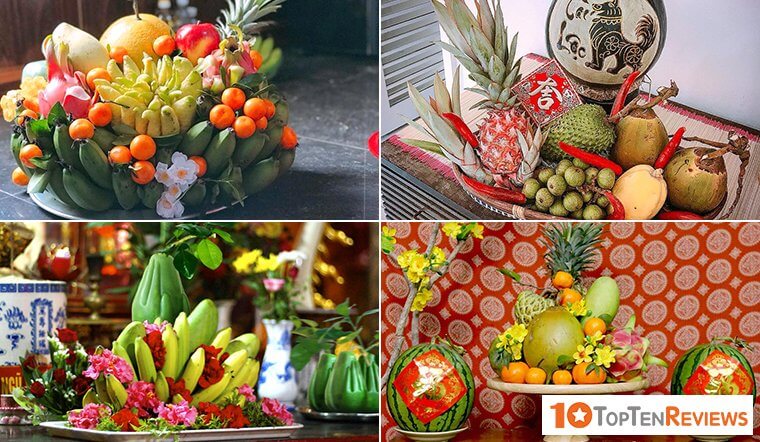
The five-fruit tray placed on the ancestral altar is an indispensable cultural beauty in the Vietnamese New Year. Each region will have different ways of displaying the five-fruit tray, using different types of fruit, but the ordinary meaning is to wish for a new year of peace, luck, happiness, well-being, and wealth.
Visiting ancestors
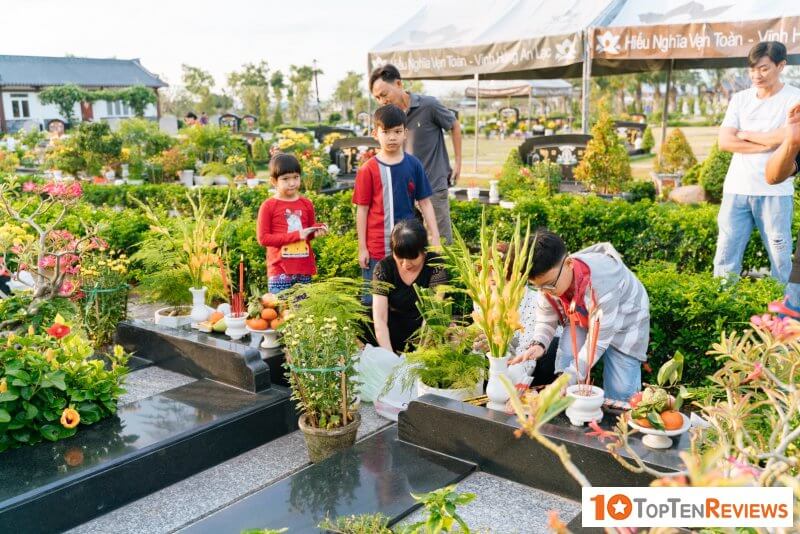
During the Lunar New Year, children and grandchildren in the family will also visit and clean their ancestors and relatives' resting place. This is a common custom of the Vietnamese people, showing filial piety and respect for their parents and deceased ancestors.
Landslides
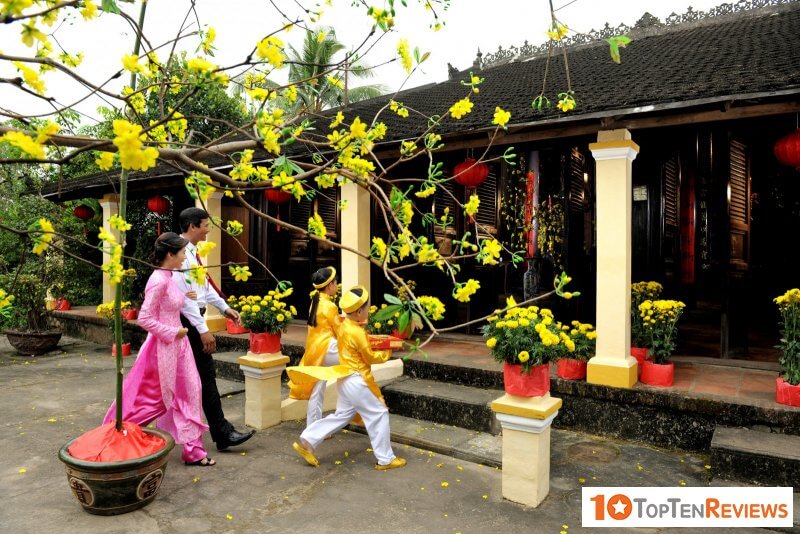
After New Year's Eve, entering the new year, whoever is the first to enter the house with New Year's greetings is the one who breaks the ground. According to the Vietnamese concept, the person who breaks ground at the beginning of the year is significant. Hence, families often choose suitable people for their age, gentle, happy family, prosperous business, happy temperament to storm their home.
Give lucky money (Li Xi)
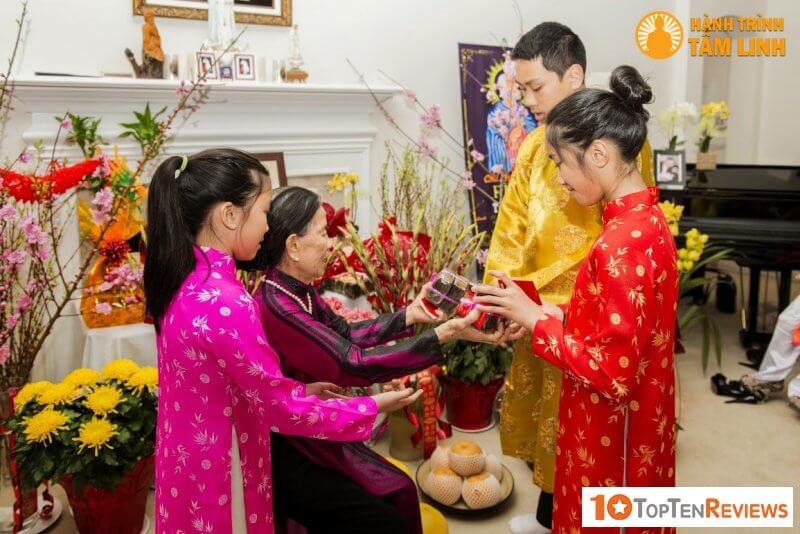
- What is lucky money (Li Xi)?
When it comes to Tet, indeed, any child is eagerly waiting for the bright red envelopes. Going to New Year's greetings and celebrating the new year are indispensable activities in the first days of the new year. Usually, on the first day of the new year, children and grandchildren in the family will gather together to wish their grandparents and parents a long life. After that, adults will celebrate their children's age with red envelopes for good luck and wish them well, study well, and be happy in the new year.
